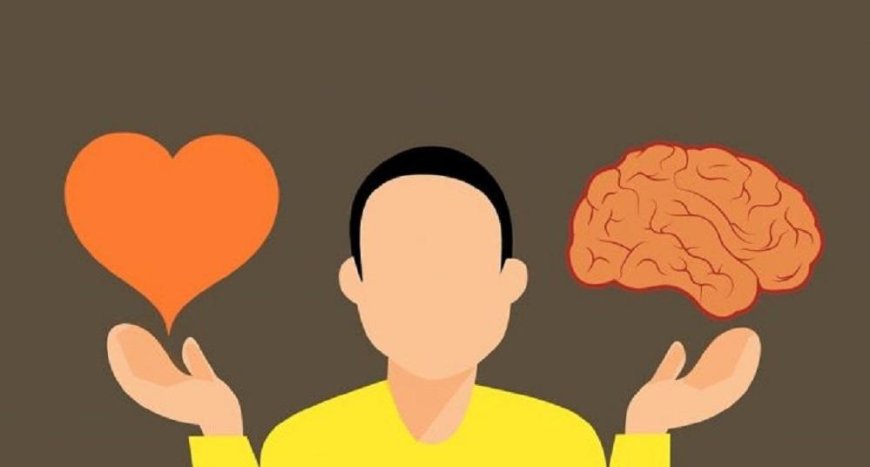Reason and emotions: balance and good decisions
is not a guarantee of good results. Therefore, it is best to combine common sense and emotions to make good decisions. Reason and emotions.

Some people believe that the best decisions come from common sense. However, making decisions after putting our emotions aside is not always effective, or even possible. Making decisions only on the basis of our emotions while forgetting our common sense is not a guarantee of good results. Therefore, it is best to combine common sense and emotions to make good decisions. Reason and emotions.
Finding the right balance between our rational and emotional sides is the key to making better decisions. At the same time, this balance comes from life experiences and many past mistakes.
Therefore, perhaps the first intelligent decision we can make is not to look at reason and emotions as contradictory values. When we think about it, the heart and mind usually work the same way for the most part. However, separating reason from emotions is something we do all too often.
Do the right decisions exist?
We all want to make the right, best decisions. But what is the right decision? It's a hard question. There are people who say that the right decision is the one that is most beneficial for us. However, it is not always crystal clear. If that were the case, everyone would choose the decision that would be best for them, regardless of the consequences it would have on other people.
For example, when we fall in love, emotions build up and usually take over our decisions. When we fall in love, we become blind and deaf. Is that what helps us the most?
Emotions still influence our decisions, even when we're not in love. The importance of emotions can be seen in brain damage in the periorbital cortex. This area plays a role in the functioning of the amygdala. The amygdala is also part of our emotional system. So patients with periorbital cortex injuries don't make emotional decisions the way normal people do.
Separating reason and emotions
What do we think of a person who made purely rational decisions? If we knew that a person cares only for himself, we would not trust that person. However, we only want to trust rational people. Maybe not?
The truth is, empathy, the ability to perceive the emotions of others, makes us trust people more than their rationality. We will trust people who can smile or get us excited or angry when something bad happens to us. This trust will be greater than that of rational people.
Must Read: Importance of vitamins in kids™ daily meals
We see it in teenagers. At this stage, we make decisions that involve high risk. This is why adolescence is considered a very difficult stage in which teens ignore their parents. The cause, or at least one cause, lies within the brain's prefrontal cortex.
The periorbital cortex, which is not fully mature, is located in this part of the brain. Since it is not maturing, it does not yet control emotions effectively. Therefore, making decisions depends on emotions. Fortunately, experiences at this stage of life will make this part of the brain mature.
The role of emotions in decision making
There seems to be a contradiction. We say that the best way to make decisions is to combine reason and emotion, but so far we've only talked about how emotions negatively affect us. To understand the role of emotions, you need to understand what somatic markers are.
Somatic markers are feelings that guide us when making decisions. These metrics help us decide which option is best for our interests, especially when there are so many things involved that we cannot decide what is best. Somatic markers are also intuition that we have accumulated from past experiences. These intuitions alert us to potential ramifications as we begin to consider certain decisions.
For example, if we go down a street where we were robbed a long time ago, we get the impression that we should move to another street. These intuitive behaviors are not always conscious. Therefore, we can go to another street without knowing what made us do it.
Fortunately, with intuition comes rational processes that allow us to weigh the pros and cons. The duality between reason and emotions is what guides our decisions and what keeps us moving forward, keeping our hope, and still who we are.
